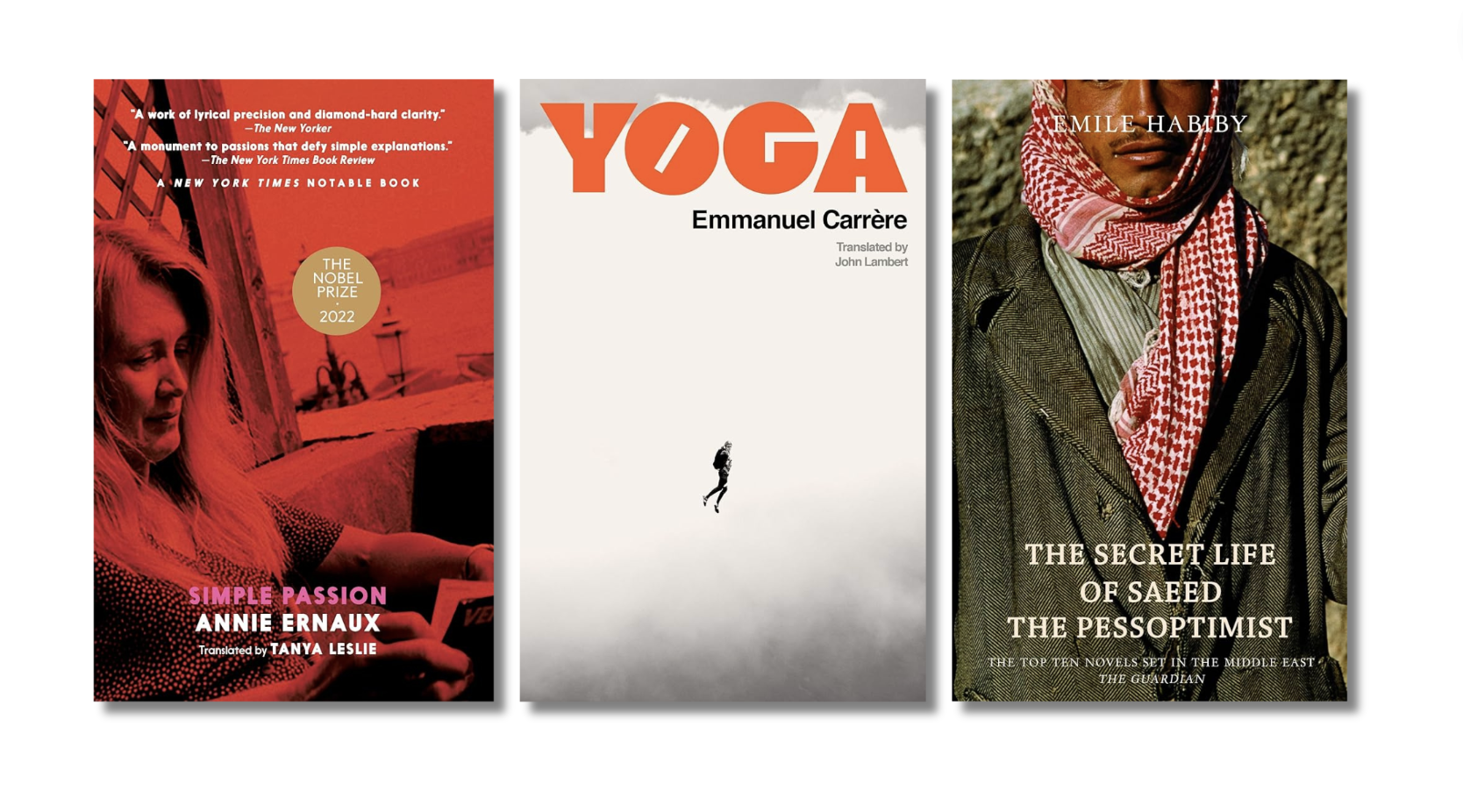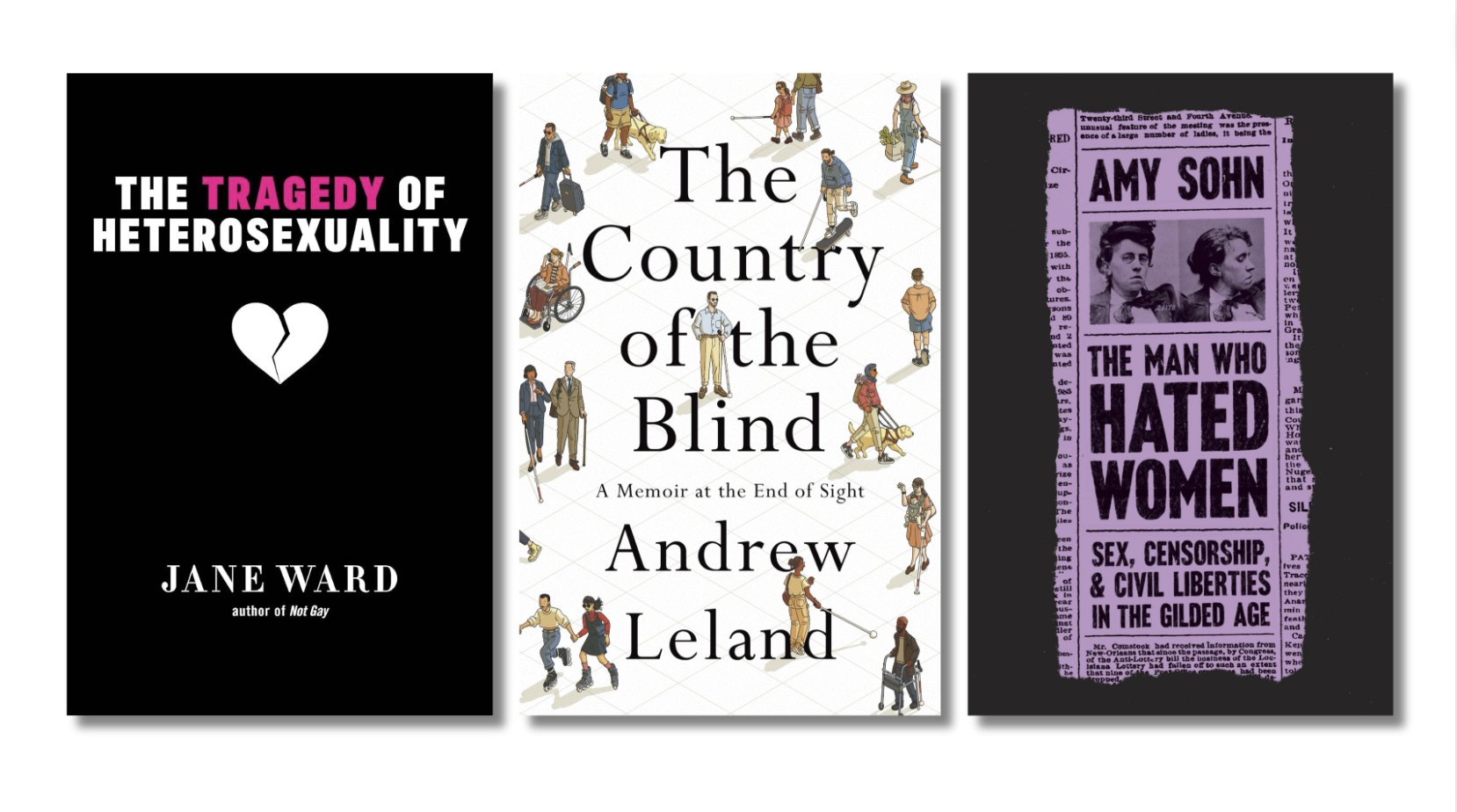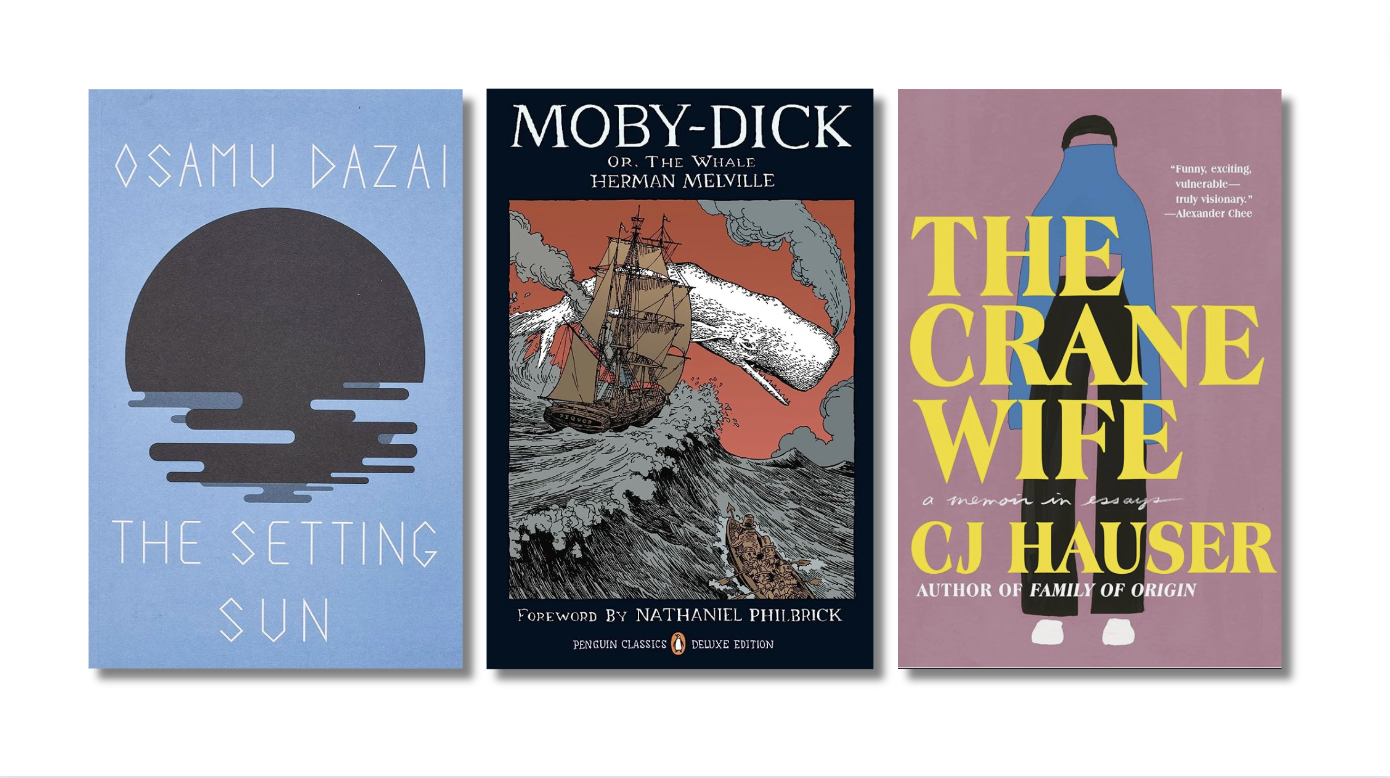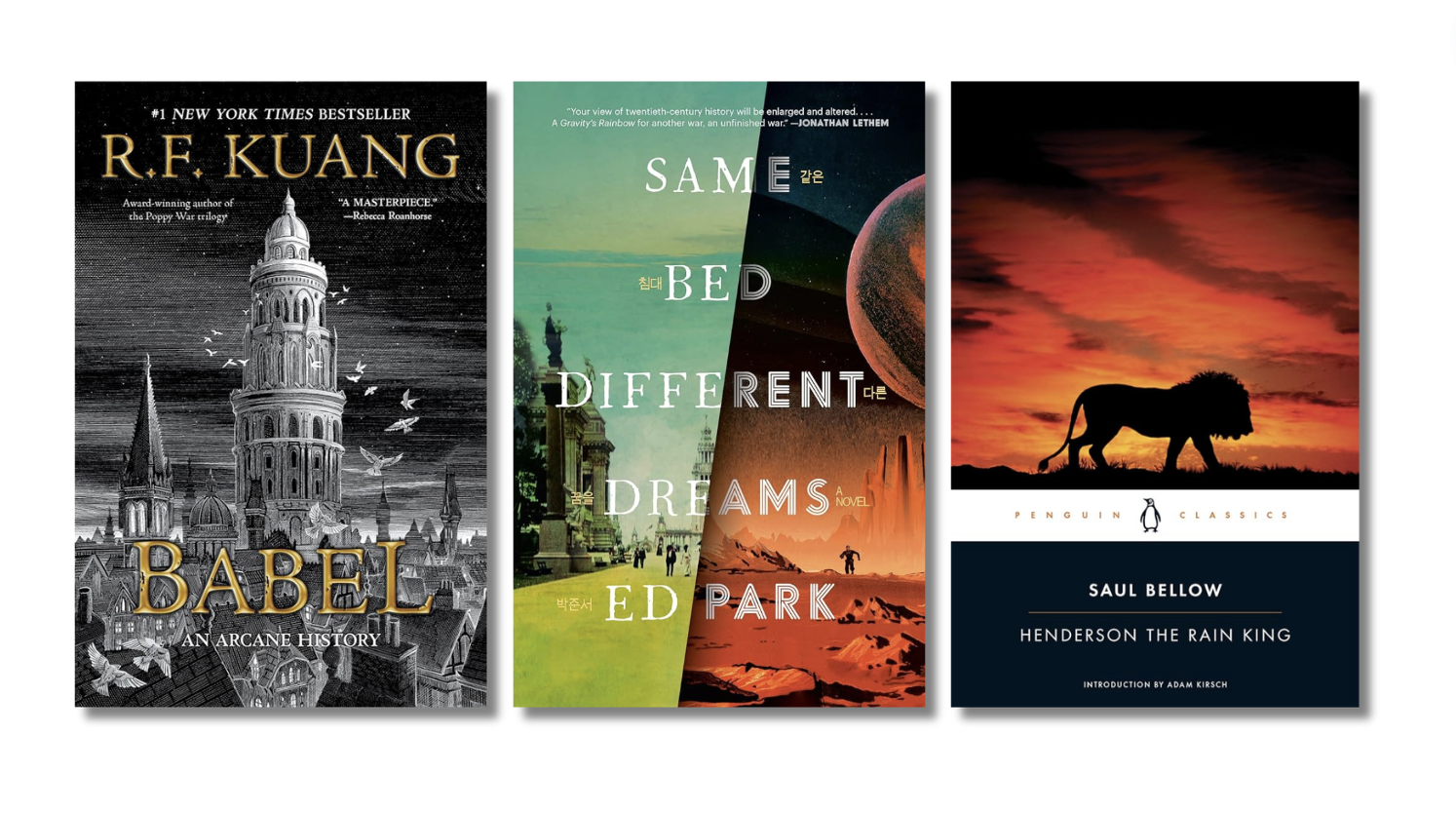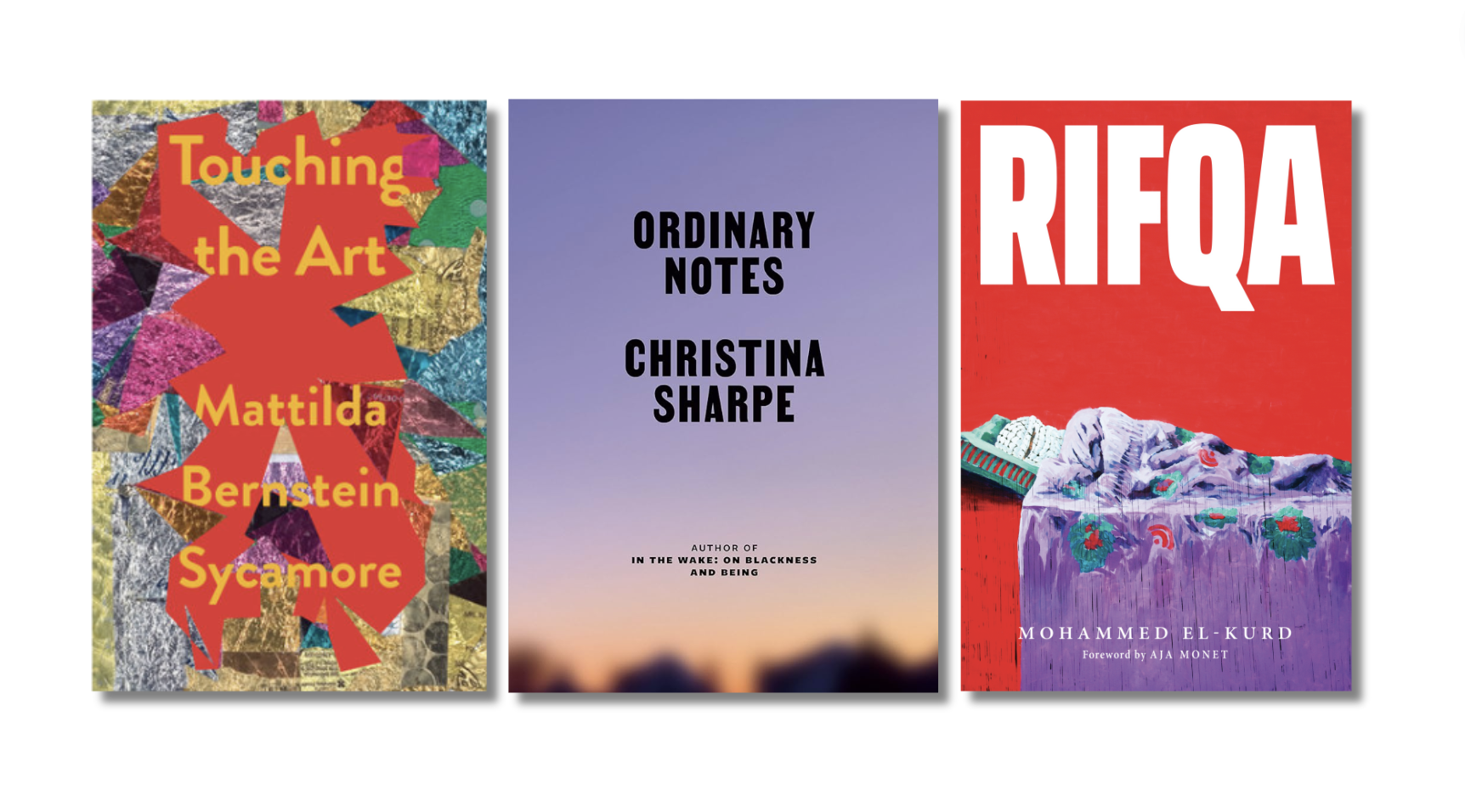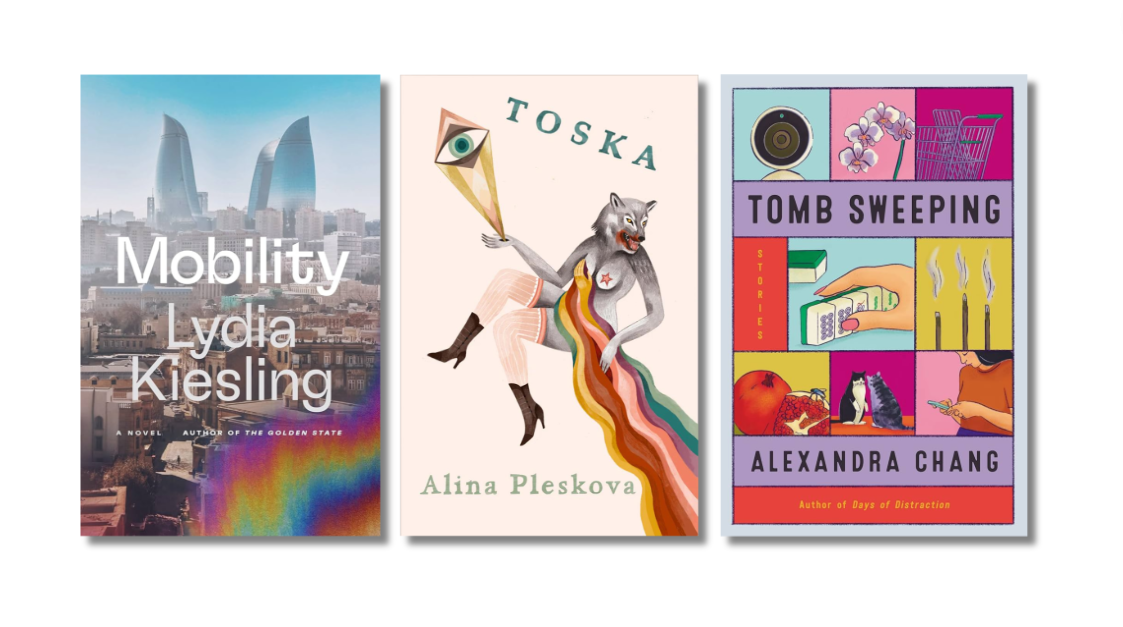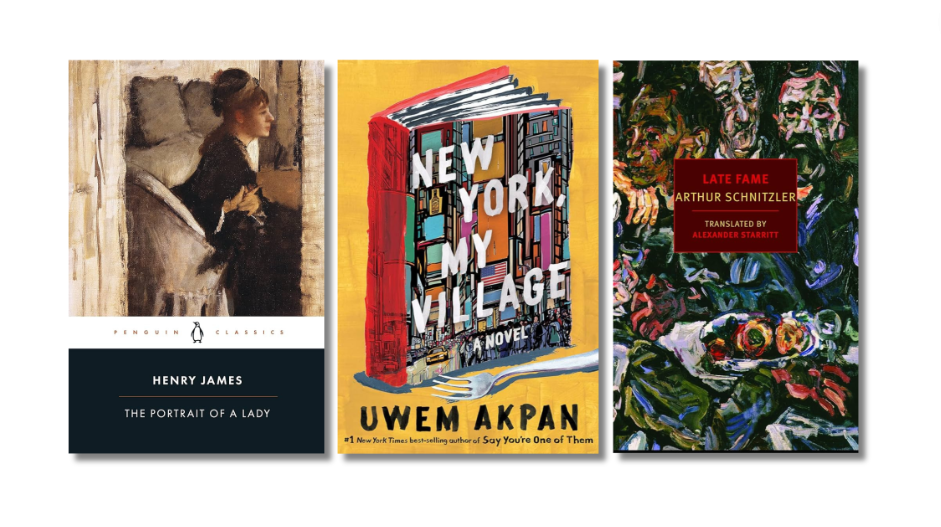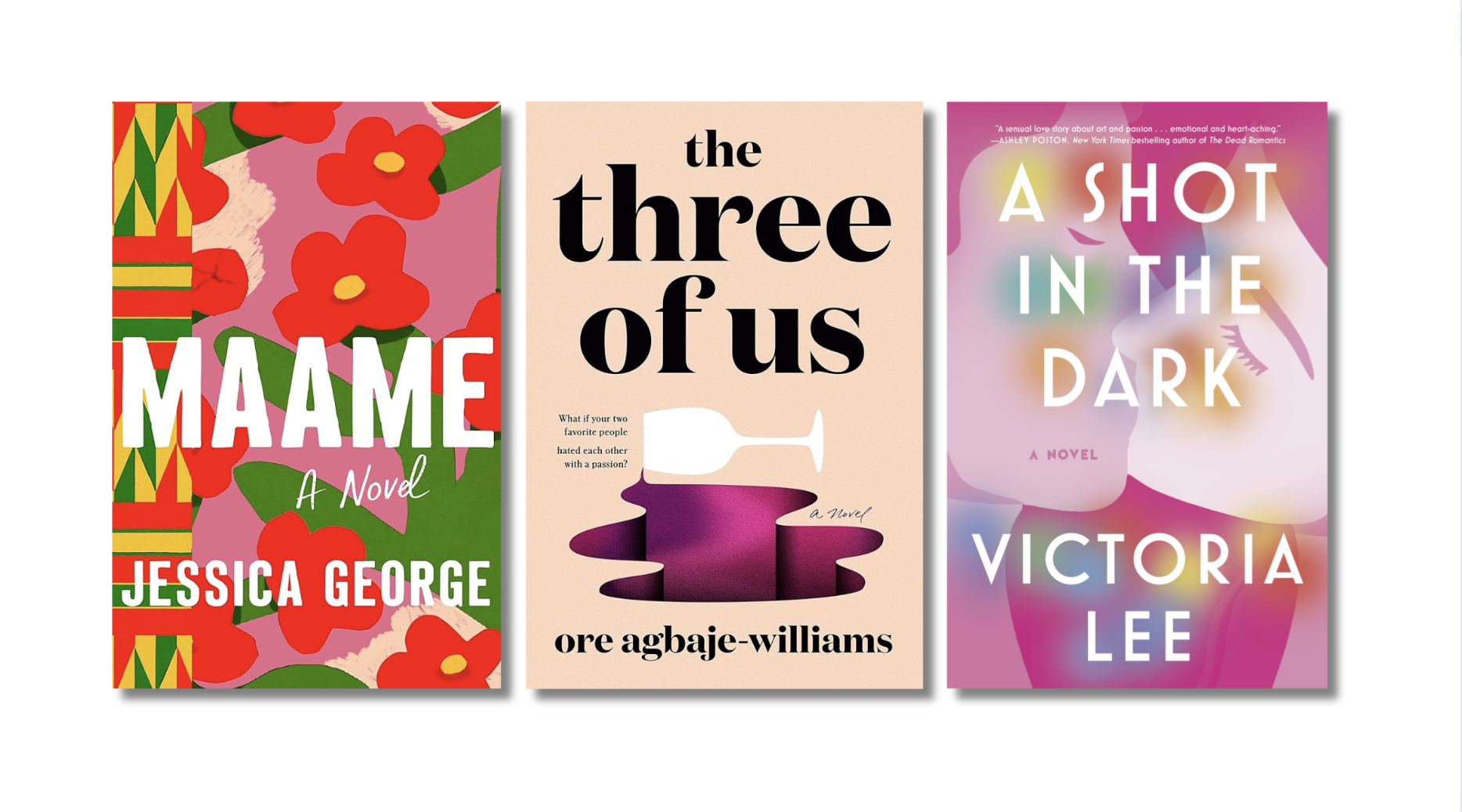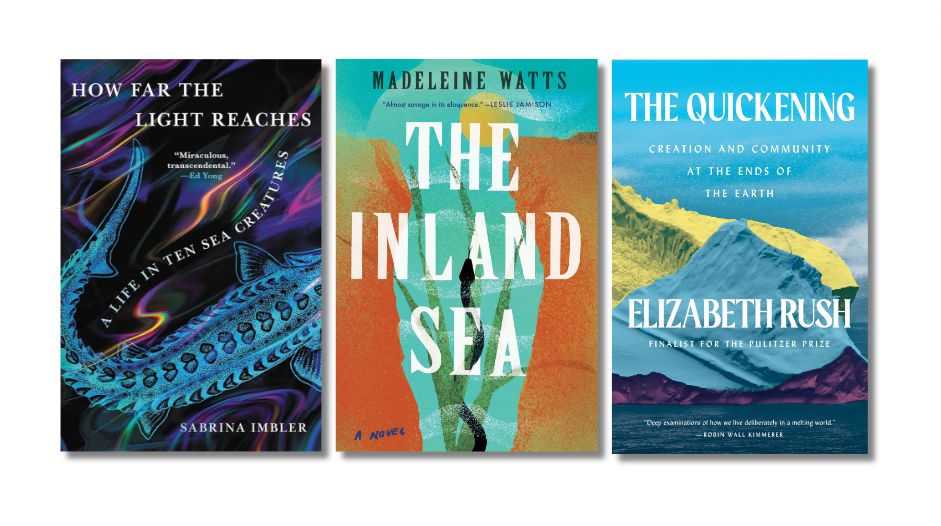1.
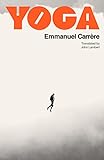 Back in April, I told a friend that I was too depressed to focus on reading and asked for a book recommendation. She suggested I try Emmanuele Carrère’s Yoga. It’s a memoir about depression, she explained, but it’s also a fast read, and there’s a lot of literary drama surrounding its publication, because it’s full of lies, which gives a salacious element to the reading experience. In the book’s final scene, she told me, the narrator is brought out of a long period of hopeless despair by the sight of a woman’s bare ass when she does a yoga handstand.
Back in April, I told a friend that I was too depressed to focus on reading and asked for a book recommendation. She suggested I try Emmanuele Carrère’s Yoga. It’s a memoir about depression, she explained, but it’s also a fast read, and there’s a lot of literary drama surrounding its publication, because it’s full of lies, which gives a salacious element to the reading experience. In the book’s final scene, she told me, the narrator is brought out of a long period of hopeless despair by the sight of a woman’s bare ass when she does a yoga handstand.
Yes, I thought. Bare-ass-yoga cure. This is what I need. I bought the book right away, but I didn’t open it until June, when I was on vacation and feeling better. I hadn’t exactly spelled it out to my friend, but for much of the spring I had been in one of those situations so severe that while walking to her apartment that day I had been doing the same thing that I had been doing for weeks with terrifying regularity, which was to repeat to myself stay alive, stay alive, stay alive, while I walked. Which is to say it didn’t matter how fast, sexy, or appropriate a book was. I was constitutionally incapable of reading at that point.
In mid-June, I was lying on a nice beach on nice island, holding the book up to shield my eyes from the sun. I felt pretty good, if suspicious of feeling good. Yoga begins with the story of Carrère (or rather, the narrator, since the book was eventually labeled a novel rather than a memoir) attending a silent meditation retreat, with the intention of writing a helpful manual about the benefits of yogic practice. But the retreat is interrupted by an act of violence, after which Carrère suffers a bipolar catastrophe and descends into psychosis. Much of the story is factual; much is apparently fabricated; you don’t know which is which.
It was a strange choice of reading on my planned restorative beach vacation. I’ve never been as ill as Carrère, but his description of depression was too accurate and too soon. The book gave me exactly the kind of company I needed earlier (my friend was right) but which I couldn’t access then, and, now that I felt (shaky but) well again, I wanted to forget about having needed a literary cure. As Carrère writes, when you are depressed it is hard to believe that you will be happy in the future, but when you are happy you are perfectly aware that depression is coming for you again. Sitting on the pebbly sand, glancing up every few pages at a sea so sparkly it was blinding, the water frothing at my feet, I felt I was fraternizing with the enemy.
My friend slightly misremembered the book’s ending; it’s not actually a woman’s ass but the sight of her “tanned belly” that reminds Carrère that life is worth living on the last page. Putting aside his narcissism and mild lechery, I understood the assignment. When I placed the book face-down in the sand I did not attempt to spark my libido by looking at the bodies of other women on the beach, instead I looked down at my own tanned legs, and with surprise, affirmed that I had made it out of the first half of 2023 alive. My incantation had worked. It was my own body that brought me back.
From the realm I’d been living in for six months, where death had surrounded me—felt imminent—because of illness in my family, illness in my body, certain losses (my own and the planet’s), that had felt unbearable, at that point I felt that I finally crossed over. Nothing was better over here, factually speaking, but the genre of my experience had changed. I thought of my favorite line from Wai Chee Dimock’s book Weak Planet: “Miracle is a shorthand for this, for all those moments when, against all odds, people living all of their lives in one genre suddenly slip out and make their way into another.”
I probably would have crossed over without reading Yoga, but this book does something peculiar with form, with genre, that became a motif for my experience this year. To put it simply, Yoga starts as one kind of book and quickly becomes another—memoir to novel, real to fabricated, self-help to self-hell (and back)—and in the process reveals that the text was never a stable entity in the first place, that there is no baseline realism from which to diverge—and therefore implies that no book and no person has a claim on realism, that we must always question the way things are delivered to us before we swallow them whole. Realism is about perception: we cannot let our perceptions of reality become totalizing, permanent, or fixed. Only by insisting on the mutability of realism can we change reality itself.
2.
Starting in September I taught an MFA class about speculative fiction, a somewhat recently invented genre without a consensus definition; the common denominator of this type of literature is that it is not supposed to be beholden to realism. Of course, we often forget that “realism” is an entirely contrived and invented genre just like every other category, and that it tends to work in service of certain people and stories more than others.
I decided that the class would look at books that question or resist the de facto universality of realism by maneuvering between genres. I called the class Crossing Over and picked books that start in one literary genre, narrative, mode, reality paradigm, and then swoop, slip, crash, into another. Books that force you to move with them across a previously invisible boundary. If the term “speculative fiction” means anything, surely it means fiction that asks who has a monopoly on reality. Genre is as much a political orientation as an aesthetic one.
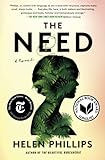
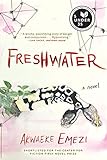
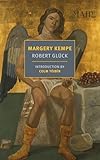
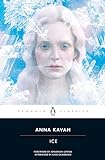
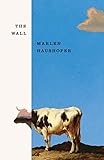
 Carrère was on the syllabus, but I decided to include his first book, a novel called The Mustache, in which a man shaves his face but nobody remembers that he had a mustache in the first place, and his semblance of coherent selfhood falls apart. In the “self-shattering” syllabus module we also read Helen Philips’s The Need and Akwaeke Emezi’s Freshwater and Robert Glück’s Margery Kempe, books that are in some way also about the violence of dogma and encounters with divinity beyond religion. Then there was a group of books in which it’s impossible to determine which half of the story is the “realism” side: Anna Kavan’s Ice, Marlen Haushofer’s The Wall, Haytham El Wardany’s The Book of Sleep. I assigned these books because I wanted to re-read them again informed by my new experience of crossing over.
Carrère was on the syllabus, but I decided to include his first book, a novel called The Mustache, in which a man shaves his face but nobody remembers that he had a mustache in the first place, and his semblance of coherent selfhood falls apart. In the “self-shattering” syllabus module we also read Helen Philips’s The Need and Akwaeke Emezi’s Freshwater and Robert Glück’s Margery Kempe, books that are in some way also about the violence of dogma and encounters with divinity beyond religion. Then there was a group of books in which it’s impossible to determine which half of the story is the “realism” side: Anna Kavan’s Ice, Marlen Haushofer’s The Wall, Haytham El Wardany’s The Book of Sleep. I assigned these books because I wanted to re-read them again informed by my new experience of crossing over.
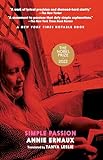
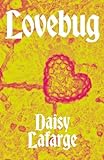
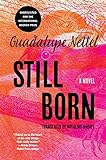
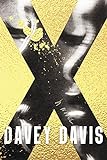
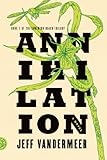 Outside of class everything started to read like a crossover book, as always happens when you are reading on a quest. Books that helped me cross into the light and focus on the brilliance of seemingly small everyday moments: Kate Zambreno’s The Light Room; Sasha Frere-Jones’s Earlier, Annie Ernaux’s Simple Passion. Books that gave me company in a sick body: Leora Fridman’s Static Palace; Artie Vierkant and Beatrice Adler-Bolton’s Health Communism; Jacqueline Rose’s The Plague; Daisy LaFarge’s Lovebug; Guadalupe Nettel’s Still Born; Rachel Aviv’s Strangers to Ourselves. Two books that criss-cross themselves until they spectacularly cross reality out: Davey Davis’s X and Catherine Lacey’s Biography of X. I sought evidence everywhere that movement and change can happen on all scales. On the syllabus I also included a spate of readings where the crossover happens on the species realm, human to nonhuman or the other way around, including Algernon Blackwood’s The Willows, Stanislaw Lem’s Solaris, and Jeff VanderMeer’s Annihilation. I did not anticipate that the question of who “counts” as human that gets raised in these works would become so painfully relevant on a global scale.
Outside of class everything started to read like a crossover book, as always happens when you are reading on a quest. Books that helped me cross into the light and focus on the brilliance of seemingly small everyday moments: Kate Zambreno’s The Light Room; Sasha Frere-Jones’s Earlier, Annie Ernaux’s Simple Passion. Books that gave me company in a sick body: Leora Fridman’s Static Palace; Artie Vierkant and Beatrice Adler-Bolton’s Health Communism; Jacqueline Rose’s The Plague; Daisy LaFarge’s Lovebug; Guadalupe Nettel’s Still Born; Rachel Aviv’s Strangers to Ourselves. Two books that criss-cross themselves until they spectacularly cross reality out: Davey Davis’s X and Catherine Lacey’s Biography of X. I sought evidence everywhere that movement and change can happen on all scales. On the syllabus I also included a spate of readings where the crossover happens on the species realm, human to nonhuman or the other way around, including Algernon Blackwood’s The Willows, Stanislaw Lem’s Solaris, and Jeff VanderMeer’s Annihilation. I did not anticipate that the question of who “counts” as human that gets raised in these works would become so painfully relevant on a global scale.
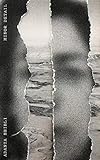
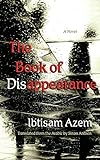
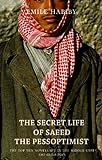 Halfway through the semester: escalation of violence in Palestine and Israel; then full-blown genocide in Gaza. I was shaken out of myself. I watched constant murder and decimation on livestream. The year was once again subdivided, this time not by something inside my own life. Depression returned, how could it not? But this time I kept reading. I read urgently and desperately, educating myself. After Palestinian author Adania Shibli was banned from the Frankfurt Book Fair, I read her book Minor Detail, in which an incident of horrible brutality eerily echoes through history; I read the Palestinian author Ibtisam Azim’s The Book of Disappearance, a speculative novel in which all the Palestinians living in Israel simply disappear, which, like El Wardany’s The Book of Sleep, figures the dead as people we can cross over to visit and learn from without dying ourselves. At the time of writing, I am reading The Secret Life of Saeed: The Pessoptimist, a genre-bending work of tragicomic genius by Palestinian-Israeli author Emile Habiby, whose protagonist keeps finding himself not dead. Not dead, then not dead again. Mere survival become speculative fiction.
Halfway through the semester: escalation of violence in Palestine and Israel; then full-blown genocide in Gaza. I was shaken out of myself. I watched constant murder and decimation on livestream. The year was once again subdivided, this time not by something inside my own life. Depression returned, how could it not? But this time I kept reading. I read urgently and desperately, educating myself. After Palestinian author Adania Shibli was banned from the Frankfurt Book Fair, I read her book Minor Detail, in which an incident of horrible brutality eerily echoes through history; I read the Palestinian author Ibtisam Azim’s The Book of Disappearance, a speculative novel in which all the Palestinians living in Israel simply disappear, which, like El Wardany’s The Book of Sleep, figures the dead as people we can cross over to visit and learn from without dying ourselves. At the time of writing, I am reading The Secret Life of Saeed: The Pessoptimist, a genre-bending work of tragicomic genius by Palestinian-Israeli author Emile Habiby, whose protagonist keeps finding himself not dead. Not dead, then not dead again. Mere survival become speculative fiction.
The classroom does not exist in a vacuum, is not separate from the world, and yet entering it can be a crossover to a place where, temporarily, you get to use your time and brain differently, a place to invent a genre of thought beyond what each of us could think or write alone. My micro-utopias dedicated to engaging with literature—class, reading groups, and writing group—are what have allowed me to begin to comprehend the scale of the world-historical crossover currently underway and to find and re-find the energy to resist. Art can form a loop with material change. You have to pick the book up, and you also have to know when to put it down and go do something else with your hands. Organizing, protesting, sabotaging, bailing out, making life, caring, not dying.
The destruction of Palestinian life is unacceptable. It has been unacceptable for 75 years. Never-ending violence cannot be treated as foregone. This violence is real, but it must not become an enduring paradigm of realism. The task is to insist that we are now crossing into a space of liberation—or better, that we have already crossed over. We can always change the genre of our lives.
More from A Year in Reading 2023
A Year in Reading Archives: 2022, 2021, 2020, 2019, 2018, 2017, 2016, 2015, 2014, 2013, 2012, 2011, 2010, 2009, 2008, 2007, 2006, 2005
